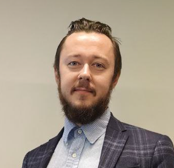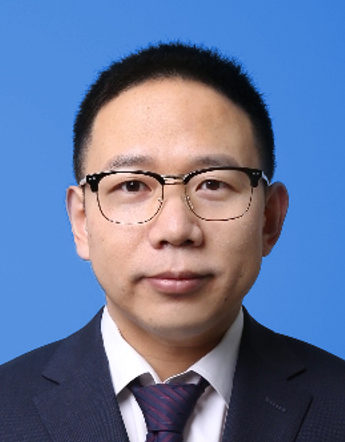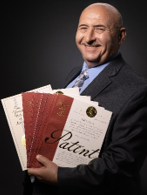Stop learning to innovate through trial and error
Learn TRIZ, a methodology developed by Genrick Altshuller for solving problems more efficiently and intuitively.
The Innovation Service Journey of IMA-InnoCloud: Challenges, Achievements, and Future Directions
Wang Jian, Li Huangye
IMA-InnoCloud (Beijing) Technology Co., Ltd.
Abstract:
IMA-InnoCloud is a consulting company specializing in innovative methodology services. From its establishment, the company has pursued a clear goal of advancing innovative services. Over nearly a decade of development, it has faced various challenges but remained steadfast in its commitment to this mission.
This paper examines the evolution of IMA-InnoCloud, from its inception to its present state, highlighting the company's innovative services designed for diverse audiences, including different age groups, educational levels, and professional backgrounds. It delves into the distinct characteristics and outcomes experienced by different learner profiles, showcasing the effectiveness of these services. Finally, the paper reflects on the lessons learned over the years, celebrates key achievements, and outlines strategic directions for overcoming challenges and driving future growth.
Personal Profile
**Wang Jian**
Mr. Wang Jian got his master’s and bachelor’s degrees from the Department of Electrical Engineering, Tsinghua University in 1993 and 1991 respectively. With over 30 years of experience in industrial automation, robotics, and intelligent equipment, Wang is not only an expert in technology and standards but also a specialist in market dynamics and management within the industry. He has founded several high-tech companies, including Hollysys Electric in the motion control field and Tsino-dynatron Electrical Tech: Co., a hidden champion in robotic servo systems. Wang’s work focuses on technology incubation, ecosystem building, technical innovation consulting, and services, as well as investment in intellectual and knowledge-intensive startup enterprises within the fields of industrial automation, robotics, and advanced manufacturing.
In the past decade, Wang has dedicated himself to the research, integration, and development of systematic innovation methodologies globally. He has actively promoted the integration of technological innovation methods with the digital and intelligent transformation of advanced manufacturing. In 2016, he co-founded IMA-Innocloud Technology with Dr. Li Huangye. Over the years, Wang has guided enterprises in implementing technical system evolution tree projects, introduced systematic innovation frameworks and processes, and ever served as a project leader of innovation methods work projects supported by the Ministry of Science and Technology.
Since 2017, Wang has been delivering graduate-level credit courses at Tsinghua University as a guest lecturer. These include System Innovation and Entrepreneurship, Innovation Psychology and Thinking, and Intelligent Manufacturing. In 2018, he became an innovation mentor at Tsinghua X-lab, where he conducted innovation workshops and the myILM Innovation Lifecycle Bootcamp, mentoring entrepreneurship teams in advanced manufacturing and robotics. Starting in 2022, he taught interdisciplinary engineering technology innovation for Tsinghua University’s Doctor of Engineering Leadership program, receiving high acclaim. Wang is also co-author of “The Evolution Tree of Technical Systems: Analysis, Prediction, and Insights into the Future” with Dr. Li Huangye, set for publication in December 2024.
Personal Profile
Li Huangye, Ph.D, Sait-Petersburg State University of Engineering and Economics, TRIZ specialist 4th level.
Mr. Li is now CTO of IMA-InnoCloud (Beijing) Technology Co., Ltd and the innovation consultant of E-Cube (Beijing) Technology Co., Ltd. Since 2017, he has also worked as an innovation instructor for Tsinghua University, offering innovation courses to post-graduate students of the Department of Electrical Engineering, the Department of Electronic Engineering and the School of Economics and Management.
Having more than 10 years of experience in TRIZ theoretical research and practical application, Mr. Li has provided innovation theory training and consulting services to companies such as Baosteel, Midea, Hisense, Xiamen Jianlin, etc. In 2012, he started the active promotion of innovative education for adolescents. With the support of the Shanghai College of Science of Technology, he has offered courses on innovation thinking at various schools in Shanghai. His courses were selected as the premium innovation courses by the Education Bureau of Shanghai Huangpu District.
- Details
- Category: TRIZCON2024 - Abstracts - Bios
Empowering Physics Discovery: TRIZ Insights with ChatGPT Guidance
Aigars Atvars, University of Latvia, Riga, Latvia
Abstract This presentation was prerecorded by the author.
TRIZ has a set of tools to solve technical problems and forecast the development of technical systems. TRIZ can be useful in physical research, helping to find novel systems or improving the current systems. The complexity of TRIZ and the lack of detailed guidelines on how and when to use specific TRIZ tools limits its broad employability. The recent emergence of Artificial intelligence (AI) tools like OpenAI ChatGPT allows the creation of a bridge from standard TRIZ tools to their application in various situations. The presentation describes the current capabilities of ChatGPT and demonstrates its application in physics research through TRIZ tools.
Tests showed that ChatGPT-4o does not have enough pre-trained information on TRIZ, although it had a very good capacity to identify contradictions in various systems. TRIZ books or publications can be uploaded in new threads or custom ChatGPTs to obtain better-trained GPTs. One could upload a specific scientific publication to start deep interaction with ChatGPT on the physical problem. Then prompts can be made about this publication – to explain nontrivial terms, find contradictions, obtain suggestions on new topics for research, and apply TRIZ tools to advance the topic. GPT-4o with Canvas allows one to start the preparation of a report or publication and update the text with AI replies to specific prompts.
A conclusion is made that ChatGPT and TRIZ can help advance physics research. However, this process still requires many iterations—learning TRIZ and topics in physics and combining all findings in a useful report. With further development of ChatGPT or other AI tools, the automated generation of TRIZ-based advice for physics research is expected to become smoother.
Biography:
Aigars Atvars is a senior researcher at the University of Latvia in Riga, Latvia. He earned his PhD in 2008 in laser physics and spectroscopy from the University of Latvia. His scientific work simulates optical processes, such as those in whispering gallery mode resonators. As part of an international research team, he extensively prepares and manages research projects. A. Atvars was introduced to TRIZ in 2007 through seminars led by Alexander Narbut in Latvia. He further deepened his understanding of TRIZ by studying the works of G. Altshuller and his followers and by attending seminars conducted by TRIZ Masters A. Narbut (Ukraine), J. Muraskovskis (Latvia), and I. Bukhman (USA). He is actively exploring ways to integrate TRIZ methodologies into academic research environments. In addition, he is enthusiastic about recent advancements in AI tools, such as ChatGPT, which can find, extract, summarize, translate, and comment on texts, as well as generate codes and realistic images. He is particularly excited about their ability to operate in real-time voice conversations, opening new possibilities for learning and deepening understanding in various areas of knowledge.
- Details
- Category: TRIZCON2024 - Abstracts - Bios
TRIZ application in industry. Experience of RUSAL company
Alexander Trantin
Abstract:
TRIZ in its modern development demonstrates a wide level of possibilities for its use in companies of various levels. However, the most difficult issue in disseminating TRIZ is the complexity of its inclusion in the activities of a specific company. The speaker will present the experience of implementing TRIZ in the activities of one of the world's largest companies engaged in non-ferrous metallurgy. The main implementation difficulties will be highlighted and the main methods for overcoming them will be considered.
Biography:
Alexander Trantin (Russia)
TRIZ specialist 4th level,
Director of Business-TRIZ Development of RUSAL,
MSU Lecturer.
- Details
- Category: TRIZCON2024 - Abstracts - Bios
AI in Innovation Logic – Evolving from Computer-Aided to Human-Assisted
Dr. Simon Dewulf
Abstract:
The evolution of artificial intelligence (AI) has profoundly impacted the landscape of innovation, transitioning from a paradigm of computer-aided processes to a more nuanced, human-assisted model. This talk explores the trajectory of AI’s role in innovation, emphasizing the shift from traditional methods where AI primarily served as a tool to enhance computational tasks to a modern framework where AI collaborates closely with human ingenuity. As AI technologies have advanced, their capabilities have expanded beyond automation and optimization to become integral partners in the creative and decision-making processes. By examining solutions across various industries, the talk illustrates how this synergy between AI and human expertise drives breakthroughs, redefines the boundaries of what is possible, and sets new standards for future innovation.
___________________
Biography:
Dr. Simon Dewulf is an engineer and innovator passionate about idea generation and invention. He has dedicated his career to developing tools and methods that empower individuals and companies to solve problems and create new products. His latest book, PROFUN: AI in Product Development (Routledge), introduces a clear and practical property-function approach to generating solutions. Profun.ai is an AI tool that blends innovation methods with patent data and large language models to provide a straightforward yet powerful innovation logic.
- Details
- Category: TRIZCON2024 - Abstracts - Bios
Fostering Innovative Learning Experiences: Practical Explorations from the Tsinghua University Lab for Lifelong Learning
标题:构建创新学习体验:清华大学终身学习实验室的实践探索-
By Yiting Xia
Abstract:
报告将分享清华大学终身学习实验室在创新学习课程设计中的研究与实践,将围绕终身学习理念下的教育创新,重点探讨跨学科教育与项目式学习在青少年教育中的应用。实验室以环境可持续发展为主题,通过理论框架与实践工具的结合,为学生设计以动手实践为核心的创新学习体验,助力其在解决实际问题中实现能力提升。
This presentation highlights the research and practices of Tsinghua University's Lab for Lifelong Learning in developing innovative educational programs. It focuses on educational innovations, particularly integrating interdisciplinary education and project-based learning in youth education. Using environmental sustainability as a central theme, the lab merges theoretical frameworks with practical tools to create hands-on, experiential learning opportunities that empower students to develop essential skills by tackling real-world challenges.
Biography:
介绍:夏怡婷(Yiting Xia),清华大学终身学习实验室课程设计科研助理,2022年于哈佛大学获得硕士学 位,研究方向为教育科技与学习体验设计。拥有中美教学经验,擅长第二语言教育。热衷于探索非正式学习(informal learning)的潜力,并致力于将学习转化为有趣且富有创意的体验,尤其关注通过“玩中学”提高学生创造力的研究。
Yiting Xia is a Curriculum Design Research Assistant at the Tsinghua University Lifelong Learning Lab. She earned her master’s degree in 2022 from Harvard University, specializing in educational technology and learning experience design. With professional experience in both China and the United States and a specialization in TESOL, she has gained valuable insights into international instructional differences. Passionate about exploring the potential of informal learning, Yiting is dedicated to transforming education into engaging and creative experiences, with a particular focus on fostering student creativity through play-based learning.
- Details
- Category: TRIZCON2024 - Abstracts - Bios
题目: 拥抱TRIZ 激发创造力
Embrace TRIZ, Inspire Creativity
Abstract
摘要:
二十多年前,TRIZ开始进入中国,给广大学者、工程师带来了巨大的思想变革,探索出了一套新的创新模式,为高校和企业培养了一大批具有创新能力的人才,建立了创新人才梯队。作为一名工业领域技术专家,刘东从亲身工作经历出发,在学习TRIZ的过程中,对比了多种创新思维的差异;在实际工作中不断使用TRIZ,他提炼出TRIZ给工程师们带来创新能力的提升,激发了企业的创新活力。通过职工创新工作室、高端技术交流等方式,他持续推广TRIZ,并形成了一套具有中国特色的经验模式。
229/1000
实时翻译
20多年前,TRIZ开始进入中国,给学者和工程师带来了巨大的思想变革,探索了新的创新模式,为高校和企业培养了大量创新人才,建立了创新人才库。作为工业领域的技术专家,刘东根据个人工作经验,比较了学习TRIZ过程中各种创新思维的差异;他在实际工作中不断运用TRIZ,增强工程师的创新能力,激发企业的创新活力。通过员工创新工作室、高端技术交流等方式,他继续推广TRIZ,形成了一套具有特色的推广模式。
Over 20 years ago, TRIZ was led into China and made great changes for scholars and engineers. As new innovative models, TRIZ has been trained for a lot of innovative talents in universities and enterprises who were the center of Chinese innovative think-tank. As a technical expert, Liu Dong has worked in the industrial field for more than 16 years. Based on his personal work experience, he shares the differences between TRIZ and other innovative methods. Using TRIZ in practical work, he enhances engineers' innovation ability and stimulates the innovation vitality of enterprises. Through innovation studios and high-end technology conferences, he continues to promote TRIZ and forms a distinctive promotion model.
刘东、中冶京诚首席专家,授权专利65项,软著63项,发表论文22篇,担任亚太工程组织联合会青委、英国电气工程师IEng,荣获中国专利奖、中国冶金科学技术一等奖、北京青年榜样等29项省部级奖励,成立了北京市级职工创新工作室。
Biography
Dong LIU, Chief Expert of MCC Capital Engineering & Research Incorporation Co., Ltd., holds 65 patents, and 63 software copyrights, published 22 Chinese/English papers.
He was FEIAP YTDWG, Beijing Enterprise Talent, IEng, received the China Patent Award, China Metallurgical Science and Technology First Prize, etc., and established "Beijing Outstanding Young Engineer Innovation Studio".
- Details
- Category: TRIZCON2024 - Abstracts - Bios
Analysis of Educational Technologies and Prospects for Their Development
Professor, Dr. Boris Farber, TRIZ Biopharma International LLC, Farber’s Center for Academic Success, Inc., Altshuller Institute of TRIZ Studies.
This email address is being protected from spambots. You need JavaScript enabled to view it.
Abstract
The landscape of education is undergoing a significant transformation driven by the rapid advancement of educational technologies. This abstract outlines the current state of educational technologies, their impact on learning outcomes, and the prospects for their future development.
Current State of Educational Technologies
Educational technologies have evolved from simple online courses to sophisticated learning management systems, adaptive learning platforms, and immersive technologies such as virtual and augmented reality. These tools enhance student engagement, personalize learning experiences, and improve educational accessibility. Key technologies include:
Learning Management Systems (LMS): Platforms like Moodle, Blackboard, and Canvas that manage and deliver educational content.
Adaptive Learning: Systems that adjust the difficulty and content of learning materials based on individual student performance.
Virtual and Augmented Reality: Technologies that create immersive learning environments, enhancing interactive and experiential learning.
Artificial Intelligence (AI) and Machine Learning (ML): Tools that analyze student data to provide personalized feedback and recommendations.
Impact on Learning Outcomes
The integration of educational technologies has shown promising results in improving learning outcomes. Studies indicate that these technologies can:
Enhance Student Engagement: Interactive and immersive learning experiences increase student participation and motivation.
Improve Personalization: Adaptive learning systems tailor education to individual learning styles and paces.
Increase Accessibility: Online and mobile learning platforms make education more accessible to a broader audience, including remote or underserved areas.
Support Data-Driven Instruction: AI and ML tools provide teachers with valuable insights to optimize teaching methods.
Prospects for Future Development
The future of educational technologies holds significant promise with several emerging trends and innovations:
Extended Reality (XR): Integrating VR, AR, and Mixed Reality (MR) to create more immersive and interactive learning experiences.
Blockchain Technology: Secure and transparent management of educational records and credentials.
Natural Language Processing (NLP): Enhanced AI-powered tools for automated grading, feedback, and language learning.
Internet of Things (IoT): Smart classrooms and learning environments that integrate physical and digital elements to enhance learning.
Challenges and Opportunities
While educational technologies offer numerous benefits, they also present several challenges. These include:
Digital Divide: Ensuring equal access to technology for all students, regardless of their socio-economic background.
Data Privacy: Protecting student data and ensuring compliance with privacy regulations.
Teacher Training: Providing educators with the necessary skills to effectively integrate new technologies into their teaching practices.
Despite these challenges, educational technologies present vast opportunities. As they continue to evolve, they have the potential to transform the education sector, making it more inclusive, effective, and personalized.
Conclusion
The analysis of educational technologies reveals a dynamic and rapidly evolving field with immense potential to revolutionize education. As we move forward, it is crucial to address the challenges associated with these technologies while leveraging their capabilities to create a more equitable, engaging, and effective learning environment. The future of education is increasingly digital, and understanding the prospects for developing educational technologies is essential for shaping the next generation of learners. This abstract provides a comprehensive overview of educational technologies' current state, impact, and future prospects, highlighting the opportunities and challenges in this rapidly evolving field.
Biography
Dr. Boris Farber, CEO, dual Ph.D., D.Sc.., Professor, Academician
Title: President, Chief Executive Officer
Company: TRIZ Biopharma International LLC, Noigel LLC., Farber’s Center for Academic Success, Inc., TRIZ Biopharma Innovations LLC.
Vice President of The Altshuller Institute for TRIZ Studies,
Vice President of the European Academy of Natural Sciences, American-European Association of Sciences, Business, Technology, and Art, World Innovation Association, Vice-President of the "TRIZ Developers Summit" for North America (USA and Canada), Vice-President of the International Council of TRIZ Masters for scientific and practical activities based on TRIZ
Dr. Boris Farber, TRIZ Master, VP of the Altshuller Institute of TRIZ Studies, President and Chief Executive Officer of TRIZ Biopharma International LLC, Noigel LLC., Farber’s Center for Academic Success, Inc., TRIZ Biopharma Innovations LLC, has been recognized by Marquis Who’s Who Top Executives, by International Association of Top Professionals in different years from 2010-2023 for dedication, achievements, and leadership in Bio and Nanotechnologies, Molecular Modeling, Applied Mathematics, Education, Bioengineering, Prosthetics, and Orthotics.
His significant contributions to the field have been acknowledged with numerous awards, a testament to his expertise and the confidence the industry has in his work. Based on this robust and diverse foundation, TRIZ (the Theory of Inventive Problem Solving), the laws of system evolution, system vision, and an international patent law education, he is credited with more than 1,000 inventions, scientific articles, and books in the areas as mentioned earlier. His four books, "Theoretical Aspects of Motion Control and Electro-stimulation,” became bestsellers for professionals in this domain. He has participated in designing a unique software: Expert Systems for Biomechanical Measurement and Prosthetics and Orthotics Prescription, based on Artificial Intelligence; Interactive Anthropomorphic Models with Kelvin–Voigt viscoelastic elements; and Problem Formulator and Directed Evolution for inventive problem-solving for medical technologies. His pioneer magnetorheological fluid appliances are implemented in a new generation of computer control prosthetics and muscle training machines based on myoelectric control. His inventions attained six gold and one silver award during the World Exhibition of Inventions in Brussels and have been produced in the space–rocket industry to date. The inventions have helped hundreds of thousands of patients in rehabilitation and improved their lifestyles. Some of his inventions have been used not only on Earth for patient rehabilitation after strokes but also in space for spacemen in spaceships and the orbital space station.
2024 is a significant year, marking the 49th anniversary of Dr. Farber and his colleagues’ pioneering teaching method. This year also celebrates 40 years of implementing rational, self-adjusted bioengineering design and 25 years of molecular self-adjusted robot design. Dr. Farber's academic journey includes becoming a corresponding member of the Rocket-Space Academy in 1994, a Full Member-Academician of the Academy of Medical Technical Sciences in 1994, and joining various Professional and Mathematical Societies, including the International Society for Prosthetics and Orthotics, the International Society of Biomechanics, and the New York Academy of Science.
He was named an Honorary Recipient of the “Honored Inventor of Russian Federation” in 1993, the highest prize that may be issued to inventors by the Russian government. He was nominated as Professor of the Year (New York, 2010); Scientist of the Year (New York, 2011-2023); Member of The Top Executive Club, 2016; VIP Person, 2016-2021; Professional of the Year by Worldwide Branding for his impact and contributions to the field of Education(Object-Oriented Patterns and Images Method), and R&D in: Applied Mathematics, Bioengineering, Bio- and Nano-Technologies; dynamic drug design based on quasi-living, self-organizing dynamic medicinal and diagnostic medicine with variable structure and synergy.
- Details
- Category: TRIZCON2024 - Abstracts - Bios
Internship Bridging Academia, Industry, and TRIZ:
The Path to a Successful Scientific Career for Professors and Students
Professor, Dr. Boris Farber, TRIZ Biopharma International LLC, Farber’s Center for Academic Success, Inc., Altshuller Institute of TRIZ Studies.
This email address is being protected from spambots. You need JavaScript enabled to view it.
Abstract
The intersection of academia, industry, and TRIZ (Theory of Inventive Problem Solving) presents a unique opportunity for professors and students to bridge the gap between theoretical knowledge and practical application, paving the way for a successful scientific career. This abstract outlines such internships' benefits, structure, and future prospects.
The Need for Interdisciplinary Collaboration
Traditional academic programs often focus on theoretical foundations, while industrial settings demand practical problem-solving skills. TRIZ, with its systematic approach to innovation, fills this gap by providing a methodology that can be applied across various disciplines. An internship that bridges academia, industry, and TRIZ can:
Integrate Theoretical Knowledge with Practical Skills: Students and professors can apply theoretical concepts to real-world problems, enhancing their understanding and applicability.
Foster Innovation and Creativity: TRIZ principles encourage innovative thinking and the resolution of contradictions, which are essential skills in both academic and industrial settings.
Enhance Career Prospects: Such internships provide valuable experience, networking opportunities, and a competitive edge in the job market.
Structure of the Internship
An effective internship program at the intersection of academia, industry, and TRIZ should include:
Academic Foundation: Participants should have a solid understanding of their field of study and the principles of TRIZ.
Industrial Placement: Interns should be placed in industrial settings where they can apply TRIZ tools to solve real-world problems.
Mentorship and Guidance: Experienced mentors from academia and industry should guide interns, providing feedback and support.
Project-Based Learning: Interns should work on specific projects that require the application of TRIZ principles to drive innovation and solve complex problems.
Benefits for Professors and Students
This type of internship offers numerous benefits for both professors and students:
For Students:
Practical Experience: Hands-on experience in applying theoretical knowledge to industrial problems.
Networking Opportunities: Building relationships with industry professionals and academics.
Career Readiness: Enhanced skills and experience make them more attractive to potential employers.
For Professors:
Industry Insights: Exposure to the latest industrial practices and challenges.
Research Opportunities: Collaboration with industry partners can lead to new research avenues and funding opportunities.
Teaching Enhancement: Professors can integrate real-world examples and case studies into their teaching, making it more relevant and engaging.
Future Prospects
As the demand for innovative and practical problem-solving skills grows, internships that bridge academia, industry, and TRIZ are likely to become more prevalent. Future trends include:
Increased Collaboration: More universities and industries will partner to offer such internships, creating a pipeline of skilled professionals.
Advanced TRIZ Applications: Integrating AI, machine learning, and other emerging technologies with TRIZ to enhance innovation capabilities.
Global Opportunities: Internships that offer international placements, exposing participants to diverse industrial and cultural environments.
Conclusion
Internships that bridge academia, industry, and TRIZ offer a unique and powerful pathway to a successful scientific career. These programs prepare professors and students to excel in both academic and industrial settings by combining theoretical knowledge with practical skills and innovative problem-solving methodologies. As the world demands more innovative and effective solutions, such internships will play a critical role in shaping the next generation of scientists and innovators. This abstract highlights the importance and benefits of internships that integrate academia, industry, and TRIZ, providing a comprehensive overview of their structure, benefits, and future prospects.
Biography
Dr. Boris Farber, CEO, dual Ph.D., D.Sc.., Professor, Academician
Title: President, Chief Executive Officer
Company: TRIZ Biopharma International LLC, Noigel LLC., Farber’s Center for Academic Success, Inc., TRIZ Biopharma Innovations LLC.
Vice President of The Altshuller Institute for TRIZ Studies,
Vice President of the European Academy of Natural Sciences, American-European Association of Sciences, Business, Technology, and Art, World Innovation Association, Vice-President of the "TRIZ Developers Summit" for North America (USA and Canada), Vice-President of the International Council of TRIZ Masters for scientific and practical activities based on TRIZ
Dr. Boris Farber, TRIZ Master, VP of the Altshuller Institute of TRIZ Studies, President and Chief Executive Officer of TRIZ Biopharma International LLC, Noigel LLC., Farber’s Center for Academic Success, Inc., TRIZ Biopharma Innovations LLC, has been recognized by Marquis Who’s Who Top Executives, by International Association of Top Professionals in different years from 2010-2023 for dedication, achievements, and leadership in Bio and Nanotechnologies, Molecular Modeling, Applied Mathematics, Education, Bioengineering, Prosthetics, and Orthotics.
His significant contributions to the field have been acknowledged with numerous awards, a testament to his expertise and the confidence the industry has in his work. Based on this robust and diverse foundation, TRIZ (the Theory of Inventive Problem Solving), the laws of system evolution, system vision, and an international patent law education, he is credited with more than 1,000 inventions, scientific articles, and books in the areas mentioned earlier. His four books, "Theoretical Aspects of Motion Control and Electro-stimulation,” became bestsellers for professionals in this domain. He has participated in designing a unique software: Expert Systems for Biomechanical Measurement and Prosthetics and Orthotics Prescription, based on Artificial Intelligence; Interactive Anthropomorphic Models with Kelvin–Voigt viscoelastic elements; and Problem Formulator and Directed Evolution for inventive problem-solving for medical technologies. His pioneer magnetorheological fluid appliances are implemented in a new generation of computer control prosthetics and muscle training machines based on myoelectric control. His inventions attained six gold and one silver award during the World Exhibition of Inventions in Brussels and have been produced in the space–rocket industry to date. The inventions have helped hundreds of thousands of patients in rehabilitation and improved their lifestyles. Some of his inventions have been used not only on Earth for patient rehabilitation after strokes but also in space for spacemen in spaceships and the orbital space station.
2024 is a significant year, marking the 49th anniversary of Dr. Farber and his colleagues’ pioneering teaching method. This year also celebrates 40 years of implementing rational, self-adjusted bioengineering design and 25 years of molecular self-adjusted robot design. Dr. Farber's academic journey includes becoming a corresponding member of the Rocket-Space Academy in 1994, a Full Member-Academician of the Academy of Medical Technical Sciences in 1994, and joining various Professional and Mathematical Societies, including the International Society for Prosthetics and Orthotics, the International Society of Biomechanics, and the New York Academy of Science.
He was named an Honorary Recipient of the “Honored Inventor of Russian Federation” in 1993, the highest prize that may be issued to inventors by the Russian government. He was nominated as Professor of the Year (New York, 2010); Scientist of the Year (New York, 2011-2023); Member of The Top Executive Club, 2016; VIP Person, 2016-2021; Professional of the Year by Worldwide Branding for his impact and contributions to the field of Education(Object-Oriented Patterns and Images Method), and R&D in: Applied Mathematics, Bioengineering, Bio- and Nano-Technologies; dynamic drug design based on quasi-living, self-organizing dynamic medicinal and diagnostic medicine with variable structure and synergy.
- Details
- Category: TRIZCON2024 - Abstracts - Bios
Generative AI for Systematic Resource Modification in Creative Problem Solving
Tanasak Pheunghua
The Inventor Development, Thailand
Abstract
This paper investigates the use of generative AI for the systematic modification of resources as part of the broader idea-generation process. By utilizing resource analysis and TRIZ-based problem-solving principles, the AI facilitates structured innovation by identifying, categorizing, and transforming various resource categories, including substance, field, time, space, information, and functional resources. The system supports diverse modification goals, such as resolving contradictions, achieving specific objectives, completing jobs to be done, or addressing other creative challenges. It begins by analyzing the existing system, defining the desired modification goal, and applying generative AI to suggest solutions based on appropriate TRIZ principles. The AI-driven modifications enhance resources by adapting their parameters or functions to meet new, optimized goals. This generative AI system accelerates the idea-generation process by providing innovative, practical solutions to real-world problems, improving efficiency and creativity. The integration of generative AI for resource modification offers significant potential across industries, fostering innovation in product development, conceptual ideation, and complex problem-solving.
Keywords: Generative AI, Resource Modification, TRIZ Principles, Idea generation, Innovation Process
Communicating Author: This email address is being protected from spambots. You need JavaScript enabled to view it.
基于生成式人工智能的系统性资源调整与创造性问题解决
摘要
本文探讨了在更广泛的思维生成过程中,应用生成式人工智能进行系统性资源调整的实践。结合资源分析和基于发明问题解决理论 (Theory of Inventive Problem Solving, TRIZ) 的问题解决原则
,人工智能助力系统化创新,可对物质、场域、时间、空间、信息和功能资源进行识别、分类和转换。该系统支持多种目标导向的修改,如解决矛盾、实现特定目标、完成任务或应对其他创造性挑战
。其流程始于分析现有系统,定义所需的修改目标,并应用生成式人工智能,依据TRIZ原则提出解决方案。人工智能驱动的修改通过调整资源的参数或功能,满足新的优化目标,从而增强资源效能。该生成式人工智能系统通过提供创新实用的解决方案,加速思维生成过程,提高效率和创造力。生成式人工智能在资源修改方面的应用,在各行各业中展现出巨大潜力,推动了产品开发、概念构思和复杂问题解决的创新进程。
关键词 : 生成式人工智能(Generative AI)、资源修改( Resource Modification)、TRIZ原则(TRIZ Principles)、思维生成(Idea Generation)、创新过程(Innovation Process)
Biography
Education
King Mongkut’s Institute of Technology North Bangkok, Bachelor of Engineering/ Major in Production Engineering
Training, Shinsuke Kurosawa, Trizit Benjaboonyazit.
TRIZ Level 3 with Dr. Salamatov Tutorial Session, Nikolai Khomenko. Tutorial Session, Dr. Oleg Feygenson
Tutorial Session, Dr. Simon Litvin, Japan TRIZ Symposium
Tutorial Session, Dr. Sergei Ikovenko. Tutorial Session, Valeri Souchkov.
Experience
Published TRIZ and Generative AI articles in 2023 worldwide, presented at innovation
conferences in France, Austria, and Taiwan.
Innovation Consulting and TRIZ Training as part of a Design Thinking Co-Project with PTT 2023.
Involved in Innovation Consulting and TRIZ Training with Bangchak since 2023.
Providing Innovation Consulting, TRIZ Training, and Coaching at Agro. Fiber / Green
Fiber (Double A Group) since 2023.
Conducted Innovation Consulting, TRIZ Training, and Coaching for CPF Group from 2009 to 2022, involving approximately 1,000 Scientists and Engineers in various
departments such as R&D, Farm, Animal Feed, Aqua Feed, and Food Product.
Engaged in Innovation Consulting, TRIZ Training, and Coaching for Thai Container Group, a subsidiary of the SCG Group, since 2010, with a break in 2020 and a return in 2023.
Provided Consulting for Process Improvement Projects and delivered TRIZ training
programs for Somboon Group since 2008, with a break until 2013, and a return in 2023.
Offered Innovation consulting services for the R&D division of the Building Material section within the SCG Group in 2010-2011.
Conducted Consulting and delivered TRIZ training programs for Mahaphant Fiber Cement Group in 2008-2009.
Extensive experience in process and quality improvement across a wide range of industries, including automotive suppliers, electric/electronic, and food packaging,
with a track record of over 200 successful Black Belt Projects and numerous Green Belt Projects from 2002 to 2007.
Proficient in process improvement using Design of Experiments (DOE), particularly for metal brazing, soldering, welding applications, and special material welding,
plating, and coating processes involving materials like silver, nickel, gold, and copper.
Experienced in optimizing painting processes and plastic injection.
Conducted food processing optimization using the Taguchi method.
Served as a Speaker and Judge Committee member for the final rounds of the MyTRIZ
(Malaysia TRIZ) Competition in 2013, 2014, 2015, and 2016 in Penang, Malaysia.
- Presented a poster showcasing the implementation of TRIZ in Thailand at the TRIZ
Symposium 2011 held at Toshiba Education & Training Institute in Yokohama, Japan.
- Presented a poster on the implementation of TRIZ in Thailand at the Global TRIZ Conference 2011 in Seoul, South Korea.
- Authored the "TRIZ" handbook, published by E.I. Square Press in 2008, with over 8,000 copies published to date.
Work Experience
Managing Director / Consultant, (2004-present) The Inventor Development Co., Ltd.
Innovex (Thailand) Co., Ltd.
Schneider Electric (Thailand) Co., Ltd.
HCC (Thailand) Co., Ltd. (Ford Motor / HCC Korea JV
- Details
- Category: TRIZCON2024 - Abstracts - Bios
Solving Inventive Problems by Primary School Students in a Digital Environment
Prof. Galina Terekhova, Kirill Terakhov
Abstract:
We have designed a digital environment for developing the inventive abilities of primary school students through educational experiments. The content of the digital laboratory includes special didactic tools based on TRIZ models for organizing inventive experiments. The proposed method of organizing the educational environment allows the expansion of the children’s experimental activity in solving inventive problems, namely, to build the skills of correct formulation of hypotheses in experimental activity, to improve the quality of practical solutions while retaining the ability to show intellectual initiative; to develop the ability to identify experimentally reliable solutions to a problem; to form a desire to use scientific terminology, to conduct a constructive dialogue in the process of joint research activities; to formulate hypotheses and conclusions during the experiment.
Keywords: digital laboratory, educational environment, research activity, children’s inventive activity, OTSM-TRIZ technologies.
Short professional biography
This email address is being protected from spambots. You need JavaScript enabled to view it.
Associate Professor of the Faculty of Theoretical and Applied Psychology, South-Ural State Humanitarian Pedagogical University, Chelyabinsk, Russia
Author of more than 300 publications in the field of TRIZ education. Provides professional training based on TRIZ for students and qualified specialists in the humanities and conducts classes for children and parents.
My research interests include TRIZ teaching, training in developing, psycho-pedagogical support of TRIZ-education participants, developing creativity, and forming strategies for productive activities (schoolchildren, students, professionals).
The author has completed the following projects:
Developed the educational concept of “Creator” (Contest of the Ministry of Science and Education at “SKOLKOVO School”), co-author (2010-2012).
Developed the vocational education program “Lessons of Creativity” (grades 1-6). Developed the projects of the Korean Russian Centre for Cooperation in Sciences and Technologies “KORUSTEC” (2012-2016).
The author jointly designed the course “TRIZ-inventor” for children aged 6-12 (2016-2018) with A.A. Nesterenko. The additional education program is included in the list of the best informal practices in Russia.
Developed the course "Innovators" (for children 6-12 years old) with the digital laboratory "Trizologika" (2020-2023).
Scientific consultant of the federal innovation platform "Testing and implementation of a model for advanced training of teachers for the development of inventive thinking of younger schoolchildren using an innovative educational and laboratory complex on TRIZ technologies in the educational space of schools," Mari El, 2023 -...)
Kirill Terekhov
Biography:
This email address is being protected from spambots. You need JavaScript enabled to view it.
Principal Software Engineer, an individual contributor to big tech companies’ core systems.
Throughout my career, I built large-scale systems in such areas as:
- Digital media where we provided a smooth and interactive experience of reading the world's most famous magazines including educative ones designed for children (Napoleon IT LLC, 2014-2019)
- Leadership I was responsible for mentorship and evaluation in an Android development department with more than 15 people. Under my direction development speed grew by ~20% and nearly complete interchangeability among developers was achieved which reduced idling time by ~85%. (Napoleon IT LLC, 2019-2020)
- Online retail I designed a generic presentation system on which an app of the second largest online marketplace is based (AliExpress Russia LLC, 2020-2024)
- Details
- Category: TRIZCON2024 - Abstracts - Bios
Where and how can an AI assist TRIZ projects?
Prof. Denis Cavallucci
Tel. : 33.(3).88.14.47.55
This email address is being protected from spambots. You need JavaScript enabled to view it.
Abstract:
For several decades, TRIZ professionals have grappled with the limited popularity of digital tools associated with the methodology. Despite the partial successes of past and present software solutions, many argue that TRIZ is primarily a cognitive activity that suffers when confined by rigid software frameworks. Others criticize these platforms for their perceived complexity and the time required to master them. However, the overwhelming advancements in AI over the past three years have compelled us to reconsider our reservations and learn to work alongside intelligent systems.
This presentation recounts an experience that began 20 years ago with creating an assistant tool initially designed to support TRIZ expertise with basic automation and database access. Today, this assistant has evolved along with the research findings of several PhD thesis results, enhanced by artificial intelligence, and can draw on billions of real-time data points from the web. This keynote will explore this groundbreaking research tool's past, present, and future.
Biography:
Denis works at the INSA Graduate School of Science and Technology of Strasbourg, France, Department of Mechanical Engineering & Human Sciences, where he teaches Engineering of Innovation. The INSA network of engineering schools is ranked n°1 in France, providing 14% of the country's engineers annually.
He is heading an Industrial Chair named AIARD. He is conducting his research activities at the Laboratory of Engineering Sciences, Computer Science, and Imaging, known as ICube (UMR-CNR 7357), in the CSIP research team. His research fields are Inventive Design Theories & Methodologies, Creativity, Design Science, and Artificial Intelligence. He is also very active in transferring his team’s research findings to industry through partnerships and cooperation plans with enterprises like Chanel, Forvia, ArcelorMittal, Sartorius, or EDF.
He is rated a respectable I10-Index Grade of 69 at Google Scholar with 189 research publications and 2448 citations.
In the early 1990s, he and associates developed a method exploiting the foundations of TRIZ to structure inventive design approaches and make them usable in the workplace. One of his key projects involved teaching inventive design to many learners. He has contributed significantly to building next-generation methods and tools that are helpful to industries in the innovation era. He has published widely in the engineering design field and TRIZ. He has been endorsed by 84 others who are highly skilled in the /TRIZ technology.
Denis is also transferring his research findings to Tekimpact, a spinoff of INSA Strasbourg and the Univ. of Strasbourg, where he is conducting consulting activities in TRIZ + AI projects.
Where and how can an AI assist TRIZ projects?
- Details
- Category: TRIZCON2024 - Abstracts - Bios








